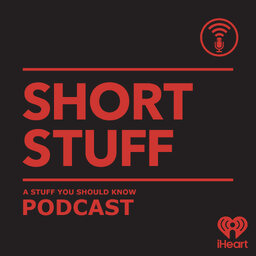How do credit default swaps work?
In theory, credit default swaps are simply insurance against failed investments. In reality, these swaps can quickly get complicated. Tune in to this podcast from HowStuffWorks.com to hear Josh and Chuck demystify credit default swaps.
Learn more about your ad-choices at https://www.iheartpodcastnetwork.com
 Stuff You Should Know
Stuff You Should Know


